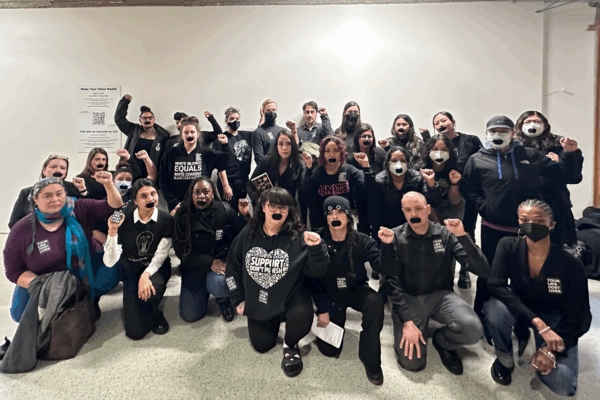SALEM, Ore. — After the state failed to adequately address Oregon’s decades-long addiction crisis, the Joint Committee on Addiction and Community Safety Response was convened with the objective of developing state policies needed to effectively address this crisis. They’ve utterly failed to meet their objective.
Although it involves one of the most complicated, expensive, and deadly problems facing Oregon, it was rushed through the session without essential and necessary vetting by treatment providers, doctors and nurses, addiction experts, budget experts, people with lived experiences, or anyone who could adequately assess the consequences of such a massive shift of public policy. This is another bill that the voices of Black, brown, and low-income people who will face increased arrests and police harassment and violence were shut out and ignored.
HB 4002 delays programs that deflect people away from jail to treatment until long after addiction is recriminalized, which will bring immediate jail time for Oregonians starting this September. In fact, it does not even require that all counties create deflection programs, nor does it require police and prosecutors to engage with deflection programs. HB 4002 sets up an inconsistent, complicated, and discriminatory process where access to treatment instead of jail will depend on your zip code and the whims of the police or prosecutor you encounter.
Thousands of Oregonians contacted lawmakers opposing recriminalization, and the majority of testimony opposed recriminalization. Although lawmakers say HB 4002 provides off-ramps to treatment, experts in navigating the criminal justice system know that those pathways will be inaccessible to most. To the contrary, this bill creates multiple on-ramps to destructive and life-shackling arrests, jails, and criminal records for people struggling with addiction, especially those who cannot afford a lawyer. People with money, connections, or racial privilege will be most likely to get into limited treatment spaces. Black, brown, and low-income people will continue to be jailed at the highest rates; the legislature’s own racial impact statement outlines as much, yet HB 4002 is being pushed through regardless. Instead of wasting our limited tax dollars on new jail beds, lawmakers should be creating more treatment beds and services. HB 4002 is not the real solution that Oregonians are demanding.
The time is always right to do what is right. We urge House and Senate members who truly care about reducing the harms of addiction, increasing community safety and racial justice to vote no on HB 4002.
###
About Oregonians for Safety and Recovery: Oregonians for Safety and Recovery (OSR) coalition members include ACLU, ACLU of Oregon, Drug Policy Alliance, Ebony Collective Coalition, Health Justice Recovery Alliance, Imagine Black, Partnership for Safety & Justice, Unite Oregon, and Urban League of Portland. These organizations work collaboratively to defend Measure 110 and decriminalization while advocating for real solutions, including increased investment and accessibility to drug treatment, detox, and housing services to meet the full needs of people experiencing addiction.
Stay Informed
Sign up to be the first to hear about how to take action.
By completing this form, I agree to receive occasional emails per the terms of the ACLU’s privacy statement.
By completing this form, I agree to receive occasional emails per the terms of the ACLU’s privacy statement.

